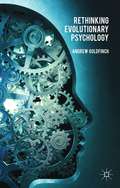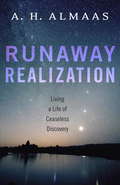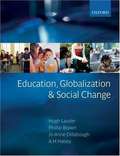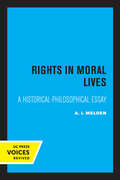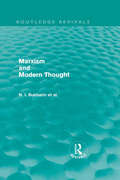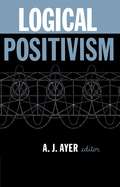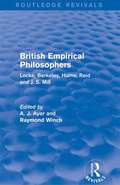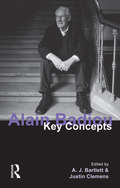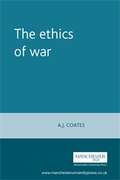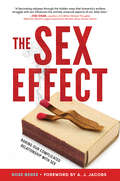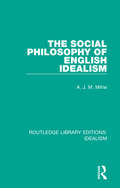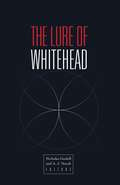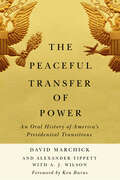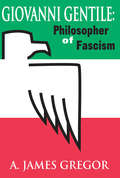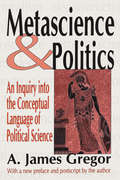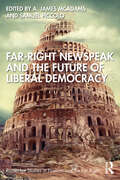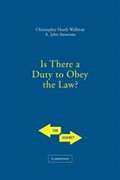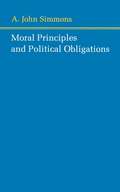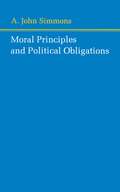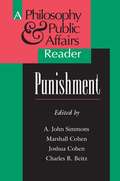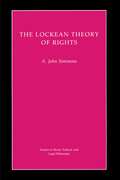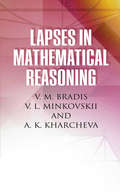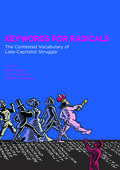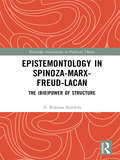- Table View
- List View
Rethinking Evolutionary Psychology
by A. GoldfinchRethinking Evolutionary Psychology identifies, champions and vindicates a streamlined evolutionary psychology. It offers a new way of thinking that moves decisively away from theoretical and critical excess. Where standard accounts often obscure and distort, this book emphasizes and develops evolutionary psychology's heuristic credentials.
Runaway Realization
by A. H. AlmaasFor the first time in print, well-known spiritual teacher A. H. Almaas presents the highest level and most profound teachings of the Diamond Approach on the true nature of reality and the path to enlightenment. The teaching in this book is off the map--because reality itself cannot be captured in a map. In fact, reality is far more alive, far more mysterious than anything we can conceive of. It is always revealing itself by knowing itself; and knowing reality and living it becomes the fulfillment of our life. A. H. Almaas, the originator of the Diamond Approach, here presents a new paradigm for understanding reality: the view of totality. He reveals that our life can become an endless revelation of reality, an adventure with neither beginning nor end. A. H. Almaas has been developing and teaching the Diamond Approach, a spiritual path of self-realization and maturity based on an original synthesis of modern discoveries in the field of psychology and a new paradigm about spiritual nature, for more than thirty years. If we can say the Diamond Approach has a goal it is to realize the truth at progressively deeper levels until one reaches the ultimate Truth, the Absolute, and to become integrated into that truth so that we are a living presence and embodiment of that truth. The teachings of this path have been unfolding over time, and Runaway Realization presents--for the first time in print--the highest level of teachings in the Diamond Approach in the most profound work by Almaas so far. In this book, Almaas offers a detailed look at the true nature of reality and the nature of enlightenment. He also talks about practice--what it is and what it isn't, and how practice relates to the process of realization. He looks at what it is to be a human being and what our role is in the totality of the universe. The material includes a discussion of the nature of space and time, as well as a view of more and more subtle levels of realization.
Education, Globilization and Social Change
by Phillip Brown Hugh Lauder Jo-Anne Dillabough A. H. HalseyEducation is seen as central to economic competitiveness, the reduction of poverty and inequality, and environmental sustainability. This book is an invaluable collection of key readings, with particular reference to globalization, for anyone concerned with the study of education at a time of major economic and social change.
Rights in Moral Lives: A Historical-Philosophical Essay
by A. I. MeldenIn Rights in Moral Lives, A. I. Melden, a distinguished philosopher and moral rights theorist, examines important changes that have occurred in our thinking about rights since first mention of them was made in early modern times. His inquiry is framed by an opening question and a concluding response. The question is whether the Greeks had any conception of a moral right. Some argue that they did not, on the ground that they had no word for a right. Others claim that they did, since they employed certain locutions, the equivalents of which in our language are tied to some notion of a moral right. Melden reviews in detail some of the most important historical conceptions of rights and examines serious questions raised by the fact that there have been striking changes in our thinking about rights. His discussion elucidates the place of moral rights in the broader network of moral concepts, along with the role they should play in our moral lives. Among the fundamental issues raised and discussed are the ways in which we are to understand various sorts of rights, the relation of special moral rights to our basic human rights, the now familiar claim that there are animal rights, the nature of moral progress, and the dream of a moral science. This title is part of UC Press's Voices Revived program, which commemorates University of California Press’s mission to seek out and cultivate the brightest minds and give them voice, reach, and impact. Drawing on a backlist dating to 1893, Voices Revived makes high-quality, peer-reviewed scholarship accessible once again using print-on-demand technology. This title was originally published in 1988.
Marxism and Modern Thought (Routledge Revivals)
by N. I. Bukharin A. M. Deborin Y. M. Yuranovsky S. I. Vavilov V. L. Komarov A. I. TiumenievFirst published in English in 1935, this is a vital and stimulating critical appraisal of contemporary thought in the post-World War One era. Written by a selection of leading Marxist thinkers including Nikolai Bukharin, who would later become one of the most famous victims of Stalin's show trials, this work offers a Marxist critique of contemporary thought relating to philosophy, science and history. The authors all lean towards the view that the general tendency of modern thought is to abandon the historical method and to deny progress, with the conclusion that Marxism was the only historical and progressive outlook in science, philosophy and history in the period following the First World War and the Communist revolution in Russia. A fascinating document of great historical and political interest which offers an invaluable insight into contemporary thought in the Soviet Union of the 1930s.
Logical Positivism (The Library Of Philosophical Movements)
by A. J. AyerEdited by a leading exponent of the school, this book offers--in the words of the movement's founders--logical positivism's revolutionary theories on meaning and metaphysics, the nature of logic and mathematics, the foundations of knowledge, the content of psychological propositions, ethics, sociology, and the nature of philosophy itself.
British Empirical Philosophers: Locke, Berkeley, Hume, Reid and J. S. Mill. [An anthology] (Routledge Revivals)
by A. J. Ayer and Raymond WinchFirst published in 1952, British Empirical Philosophers is a comprehensive picture of one of the most important movements in the history of philosophic thought. In his introduction, Professor A. J. Ayer distinguishes the main problems of empiricism and gives a critical account of the ways in which the philosophers whose writings are included in this volume attempted to solve them. Editors Ayer and Raymond Winch bring together an authoritative abridgement of John Locke’s Essay Concerning Human Understanding; Bishop George Berkeley’s Principles of Human Knowledge; almost the entire first book of David Hume’s Treatise Concerning Human Nature; and extracts from Thomas Reid’s Essay on the Intellectual Powers of Man and John Stuart Mill’s Examination of Sir William Hamilton’s Philosophy.
Alain Badiou: Key Concepts (Key Concepts)
by Justin Clemens A. J. BartlettAlain Badiou is one of the world's most influential living philosophers. Few contemporary thinkers display his breadth of argument and reference, or his ability to intervene in debates critical to both analytic and continental philosophy. Alain Badiou: Key Concepts presents an overview of and introduction to the full range of Badiou's thinking. Essays focus on the foundations of Badiou's thought, his "key concepts" - truth, being, ontology, the subject, and conditions - and on his engagement with a range of thinkers central to his philosophy, including Plato, Descartes, Spinoza, Heidegger and Deleuze.
The Ethics of War
by A. J. CoatesDrawing on examples from the history of warfare from the crusades to the present day, "The ethics of war" explores the limits and possibilities of the moral regulation of war. While resisting the commonly held view that 'war is hell', A. J. Coates focuses on the tensions which exist between war and morality. The argument is conducted from a just war standpoint, though the moral ambiguity and mixed record of that tradition is acknowledge and the dangers which an exaggerated view of the justice or moral worth of war poses are underlined.
The Sex Effect: Baring Our Complicated Relationship with Sex
by A. J. Jacobs Ross BenesA gripping exploration of the relationship between sex and our society, with a foreword by bestselling author A.J. JacobsWhy do political leaders become entangled in so many sex scandals? How did the U.S. military inadvertently help make San Francisco a mecca of gay culture? And what was the original purpose of vibrators? Find out the answers to all these questions and more as journalist Ross Benes delves into the complicated relationship between everyday human life—including religion, politics, and technology—and our sexuality.Drawing on history, psychology, sociology, and more, The Sex Effect combines innovative research and analysis with captivating anecdotes to reveal just how much sex shapes our society—and what it means for us as humans as we continue to struggle with the wide-ranging effects our sexuality has on the world around us.
Pascal Pensées
by Blaise Pascal A. J. KrailsheimerBlaise Pascal, the precociously brilliant contemporary of Descartes, was a gifted mathematician and physicist, but it is his unfinished apologia for the Christian religion upon which his reputation now rests. The Penseesis a collection of philosophical fragments, notes and essays in which he explores the contradictions of human nature in psychological, social, metaphysical and, above all, theological terms. Mankind emerges from Pascal's analysis as a wretched and desolate creature within an impersonal universe, but whose existence can be transformed through faith in God's grace. This masterly translation conveys Pascal's disarmingly personal tone and captures all the fire and passion of the original. Also contained in this volume are a comparison between different editions, appendices and a bibliography
The Social Philosophy of English Idealism (Routledge Library Editions: Idealism)
by A. J. MilneAt the turn of the century Idealism was perhaps the leading school of philosophy in the English-speaking world. By the 1960s the situation was very different. There had occurred during the previous two generations what has been described as ‘a revolution in philosophy’, one consequence of which had been the almost total eclipse of Idealism. Originally published in 1962, this book is a critical study of certain aspects of the work of four Idealist philosophers: F. H. Bradley, T. H. Green, Bernard Bosanquet and Josiah Royce. It deals mainly with their social philosophy, but some consideration is also given to their metaphysics. It is the thesis of this book that there is a valid and significant form of Idealism to be found in the work of these philosophers, but that they did not succeed in developing it fully and consistently.
The Lure of Whitehead
by Nicholas Gaskill A. J. NocekOnce largely ignored, the speculative philosophy of Alfred North Whitehead has assumed a new prominence in contemporary theory across the humanities and social sciences. Philosophers and artists, literary critics and social theorists, anthropologists and computer scientists have all embraced Whitehead&’s thought, extending it through inquiries into the nature of life, the problem of consciousness, and the ontology of objects, as well as into experiments in education and digital media.The Lure of Whitehead offers readers not only a comprehensive introduction to Whitehead&’s philosophy but also a demonstration of how his work advances our emerging understanding of life in the posthuman epoch. Contributors: Jeffrey A. Bell, Southeastern Louisiana U; Nathan Brown, U of California, Davis; Peter Canning; Didier Debaise, Free U of Brussels; Roland Faber, Claremont Lincoln U; Michael Halewood, U of Essex; Graham Harman, American U in Cairo; Bruno Latour, Sciences Po Paris; Erin Manning, Concordia U, Montreal; Steven Meyer, Washington U; Luciana Parisi, U of London; Keith Robinson, U of Arkansas at Little Rock; Isabelle Stengers, Free U of Brussels; James Williams, U of Dundee.
The Peaceful Transfer of Power: An Oral History of America’s Presidential Transitions (Miller Center Studies on the Presidency)
by David Marchick Alexander Tippett A. J. WilsonRonald Reagan called the peaceful transfer of power from one U.S. president to the next a miracle, and it is. It is also the most delicate and hazardous period in the entire political cycle. Americans learned the stakes in 2020, when President Donald Trump’s refusal to trigger the formal start of the transition process to President-Elect Joe Biden created perhaps the worst crisis for American democracy since the Civil War. Even at the best of times, an incoming administration faces a gargantuan task, as every new president must make more than four thousand political appointments in a short period of time.Yet the day-to-day process of presidential transitions remains poorly understood, even by government specialists. This is why the Partnership for Public Service’s Center for Presidential Transition created Transition Lab, a one-year podcast series that ran through January 2021. The Peaceful Transfer of Power now puts those distinct interviews with scholars, journalists, public servants, and—most important—participants in every transition from Ford–Carter to Trump–Biden into a narrative format that illuminates the long history, complexity, and current best practices associated with this most vital of democratic institutions.Presidential transitions stand at a critical juncture here and abroad. Highly readable and deeply informative, this book offers every citizen invested in safeguarding our democracy accessible and concentrated insights that will help future transitions run better, faster, and more smoothly.The Partnership for Public Service is a nonprofit, nonpartisan organization that is building a better government and a stronger democracy.
Giovanni Gentile: Philosopher of Fascism
by A. James GregorThe recent rise in Europe of extreme right-wing political parties along with outbreaks of violent nationalist fervor in the former communist bloc has occasioned much speculation on a possible resurgence of fascism. At the polemical level, fascism has become a generic term applied to virtually any form of real or potential violence, while among Marxist and left-wing scholars discredited interpretations of fascism as a "product of late capitalism" are revived. Empty of cognitive significance, these formulas disregard the historical and philosophical roots of fascism as it arose in Italy and spread throughout Europe. In Giovanni Gentile: Philosopher of Fascism, A. James Gregor returns to those roots by examining the thought of Italian Fascism's major theorist.In Gregor's reading of Gentile, fascism was-and remains-an anti-democratic reaction to what were seen to be the domination by advanced industrial democracies of less-developed or status-deprived communities and nations languishing on the margins of the "Great Powers." Sketching in the political background of late nineteenth-century Italy, industrially backward and only recently unified, Gregor shows how Gentile supplied fascism its justificatory rationale as a developmental dictatorship. Gentile's Actualism (as his philosophy came to be identified) absorbed many intellectual currents of the early twentieth century including nationalism, syndicalism, and futurism and united them in a dynamic rebellion against new perceived hegemonic impostures of imperialism. The individual was called to an idealistic ethic of obedience, work, self-sacrifice, and national community. As Gregor demonstrates, it was a paradigm of what we can expect in the twenty-first century's response, on the part of marginal nations, to the globalization of the industrialized democracies. Gregor cites post-Maoist China, nationalist Russia, Africa, and the Balkans at the development stage from which fascism could grow.The f
Metascience and Politics: An Inquiry into the Conceptual Language of Political Science
by A. James GregorA central problem in political inquiry is the conceptual and linguistic informality of political science. For most of its history, the discipline has been largely pursued with the analytic and logical machinery of ordinary language. Likewise, there has been little effort to standardize how language is used, or to systematize theoretical procedures to insure methodological uniformity. In an effort to better understand and defend the research processes that attend, sustain, and foster the systematic credibility of political science, Gregor argues a special conceptual language is needed to enhance the rigor, replicability, articulation, and interpretation of political science's empirical findings.Gregor reviews the conceptual inventory of the social sciences in general with particular emphasis on distinctions between descriptive, theoretical, and normative language. He analyzes what might count as "objectivity" and "truth" in a given set of circumstances in an effort to standardize how political scientists make such distinctions. How "theory" and "explanation" might be assessed in less rigorous disciplines is also considered. Gregor is opposed to the postmodernist tendency to use "language games" in the social sciences that purport to close the gaps separating the discourses of knowledge, ethics and politics, but do so at the expense of clarity, rigor, and objectivity. In Gregor's view, these alternative perspectives have exploited vagueness and ambiguity in order to accomplish what they consider to be their political tasks. A substantial postscript to this edition traces some of the postmodernist perspectives to their origins in the works of particular individuals and to their history in the thought of twentieth-century Europe.Metascience and Politics attempts to address all these issues, with brevity and seriousness of purpose, in order to provide a defensible rationale for the scientific character of social and political studies. It will be of interest to political scientists, sociologists, philosophers, and intellectual historians.A. James Gregor is professor of political science at the University of California at Berkeley and an adjunct professor at Command and Staff College, U.S. Marine Corps University at Quantico, Virginia. He has also been awarded the Order of Merit by the President of the Italian Republic for his contribution to Italy as a nation through his published works. He is the author of Giovanni Gentile: Philosopher of Fascism, Interpretations of Fascism, Phoenix: Fascism in Our Time, and Marxism, China, and Development, all published by Transaction.
Far-Right Newspeak and the Future of Liberal Democracy (Routledge Studies in Fascism and the Far Right)
by A. James McAdams Samuel PiccoloThis book is the first systematic, multicountry exploration of far-right Newspeak.The contributors analyze the ways in which contemporary far-right politicians, intellectuals, and pundits use and abuse traditional liberal concepts and ideas to justify positions that threaten democratic institutions and liberal principles. They explore cases of both far-right and right-wing thought in eastern and western Europe, the United States, and Canada. Subjects include well-known figures, such as Marine Le Pen, Tucker Carlson, Peter Thiel, Nick Griffin, Thierry Baudet, Jordan Peterson, Russell Brand, and Viktor Orbán, and lesser-known names, such as the Czech politician Tomio Okamura and the Internet personality "Raw Egg Nationalist." The contributors examine these figures’ claims about hot-button issues, including immigration, Islam, race, Covid-19 policies, feminism, monetary policy, and free speech. The book demonstrates that mainstream politicians and intellectuals are at risk of losing control over the definitions of the very concepts, including equal rights, racial and ethnic diversity, and political tolerance, that undergird their vision of liberal democracy.It will be of interest to scholars, journalists, policymakers, political scientists, historians, political theorists, sociologists, and general audiences concerned about the sophisticated efforts of far-right and right-wing politicians and pundits to undermine the foundations of liberal democracy.
Is There a Duty to Obey the Law? (For and Against Series)
by Christopher Heath Wellman A. John SimmonsThe central question in political philosophy is whether political states have the right to coerce their constituents and whether citizens have a moral duty to obey the commands of their state. In this book, Christopher Heath Wellman and A. John Simmons defend opposing answers to this question. Wellman bases his argument on samaritan obligations to perform easy rescues, arguing that each of us has a moral duty to obey the law as his or her fair share of the communal samaritan chore of rescuing our compatriots from the perils of the state of nature. Simmons counters that this, and all other attempts to explain our duty to obey the law, fail. He defends a position of philosophical anarchism, the view that no existing state is legitimate and that there is no strong moral presumption in favor of obedience to, or compliance with, any existing state.
Moral Principles And Political Obligations
by A. John SimmonsOutlining the major competing theories in the history of political and moral philosophy--from Locke and Hume through Hart, Rawls, and Nozick--John Simmons attempts to understand and solve the ancient problem of political obligation. Under what conditions and for what reasons (if any), he asks, are we morally bound to obey the law and support the political institutions of our countries?
Moral Principles and Political Obligations
by A. John SimmonsOutlining the major competing theories in the history of political and moral philosophy--from Locke and Hume through Hart, Rawls, and Nozick--John Simmons attempts to understand and solve the ancient problem of political obligation. Under what conditions and for what reasons (if any), he asks, are we morally bound to obey the law and support the political institutions of our countries?
Punishment: A Philosophy and Public Affairs Reader (Philosophy and Public Affairs Readers #2)
by A. John SimmonsThe problem of justifying legal punishment has been at the heart of legal and social philosophy from the very earliest recorded philosophical texts. However, despite several hundred years of debate, philosophers have not reached agreement about how legal punishment can be morally justified. That is the central issue addressed by the contributors to this volume. All of the essays collected here have been published in the highly respected journal Philosophy & Public Affairs. Taken together, they offer not only significant proposals for improving established theories of punishment and compelling arguments against long-held positions, but also ori-ginal and important answers to the question, "How is punishment to be justified?" Part I of this collection, "Justifications of Punishment," examines how any practice of punishment can be morally justified. Contributors include Jeffrie G. Murphy, Alan H. Goldman, Warren Quinn, C. S. Nino, and Jean Hampton. The papers in Part II, "Problems of Punishment," address more specific issues arising in established theories. The authors are Martha C. Nussbaum, Michael Davis, and A. John Simmons. In the final section, "Capital Punishment," contributors discuss the justifiability of capital punishment, one of the most debated philosophical topics of this century. Essayists include David A. Conway, Jeffrey H. Reiman, Stephen Nathanson, and Ernest van den Haag.
The Lockean Theory of Rights (Studies in Moral, Political, and Legal Philosophy #2)
by A. John SimmonsJohn Locke's political theory has been the subject of many detailed treatments by philosophers and political scientists. But The Lockean Theory of Rights is the first systematic, full-length study of Locke's theory of rights and of its potential for making genuine contributions to contemporary debates about rights and their place in political philosophy. Given that the rights of persons are the central moral concept at work in Locke's and Lockean political philosophy, such a study is long overdue.
Lapses in Mathematical Reasoning (Dover Books on Mathematics)
by A. K. Kharcheva L. Minkovskii V. M. BradisDesigned as a method for teaching correct mathematical thinking to high school students, this book contains a brilliantly constructed series of what the authors call "lapses," erroneous statements that are part of a larger mathematical argument. These lapses lead to sophism or mathematical absurdities. The ingenious idea behind this technique is to lead the student deliberately toward a clearly false conclusion. The teacher and student then go back and analyze the lapse as a way to correct the problem.The authors begin by focusing on exercises in refuting erroneous mathematical arguments and their classification. The remaining chapters discuss examples of false arguments in arithmetic, algebra, geometry, trigonometry, and approximate computations. Ideally, students will come to the correct insights and conclusions on their own; however, each argument is followed by a detailed analysis of the false reasoning. Stimulating and unique, this book is an intriguing and enjoyable way to teach students critical mathematical reasoning skills.
Keywords for Radicals: The Contested Vocabulary of Late-Capitalist Struggle
by A. K. Thompson Joy James Kelly Fritsch Clare O'Connor Silvia Federici"An extraordinary volume that provides nothing less than a detailed cognitive mapping of the terrain for everyone who wants to engage in radical politics. "—Slavoj Žižek, author of Living in the End Times "From its thought-provoking Introduction though its energizing accounts of the tensions underlying our most prized concepts, Keywords for Radicals will be indispensable to any scholar or activist who is serious about critique and change. "—Stephen Duncombe, editor of Cultural Resistance Reader In Keywords (1976), Raymond Williams devised a "vocabulary" that reflected the vast social transformations of the post-war period. He revealed how these transformations could be grasped by investigating changes in word usage and meaning. Keywords for Radicals—part homage, part development—asks: What vocabulary might illuminate the social transformations marking our own contested present? How do these words define the imaginary of today's radical left? With insights from dozens of scholars and troublemakers, Keywords for Radicals explores the words that shape our political landscape. Each entry highlights a term's contested variations, traces its evolving usage, and speculates about what its historical mutations can tell us. More than a glossary, this is a crucial study of the power of language and the social contradictions hidden within it. Contributors include Patrick Bond, Silvia Federici, John Bellamy Foster, Joy James, Ilan Pappé, Justin Podur, Nina Power, Mab Segrest, and more. Kelly Fritsch is a Banting Postdoctoral Fellow in Women's and Gender Studies at the University of Toronto. Clare O'Connor is a doctoral student in Communication at the University of Southern California. A. K. Thompson teaches social theory at Fordham University in New York.
Epistemontology in Spinoza-Marx-Freud-Lacan: The (Bio)Power of Structure (Routledge Innovations in Political Theory)
by A. Kiarina KordelaA. Kiarina Kordela steps beyond extant commentaries on Marx’s theory of commodity fetishism—from A. Sohn-Rethel to L. Althusser, É. Balibar, Slavoj Žižek, and others—to show that in capitalism value is the manifestation of the homology between thought and being, while their other aspect—power—is foreclosed and becomes the object of biopower. Using monistic Marxian/Lacanian structuralism as an alternative to dominant models from Plato and Kant to phenomenological accounts, deconstruction, and other contemporary approaches, Kordela expertly argues that Marx’s theory of commodity fetishism is a reformulation of the Spinozian thesis that thought (mind) and things (bodies or extension) are manifestations of one and the same being or substance. Kordela’s link between Spinoza and Marx shows that being consists of two aspects, value and power, the former leading to structuralist thought, the latter becoming the object of contemporary biopower. Epistemontology in Spinoza-Marx-Freud-Lacan intervenes between two dominant lines of thought in the reception of Marx today: on the one hand, an approach that relates Marxian thought to psychoanalysis from a Hegelian/dialectical perspective and, on the other hand, an approach that links Marxism to Spinozian monism, at the total exclusion of psychoanalysis.This book will interest scholars and researchers who study Marxism, (post)structuralism, psychoanalysis, critical theory, ontology, epistemology and theories of representation, theoreticians of cultural studies and comparative literature, aesthetic theory, including the relation of art to economy and politics, and biopolitics.
